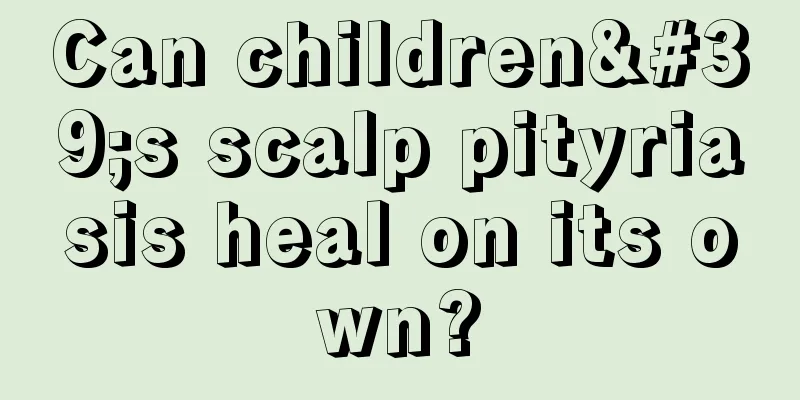Will feces inhalation affect the intelligence of newborns?

|
Parents generally pay special attention to newborns. If some problems arise, they will be very nervous. If the newborn inhales feces, they will be afraid. They always think that this will affect their baby's intellectual development and even cause mental retardation. In fact, this situation will not affect intelligence as long as it is treated in time. Generally, as long as the newborn is given intravenous treatment in time, the condition of the newborn can gradually improve. 1. If meconium aspiration pneumonia occurs, a small number of cases may cause obstructive emphysema and atelectasis due to meconium obstruction; severe cases may cause progressive dyspnea and respiratory failure. At present, the fetus's condition can only be treated in time. A mild case will not have much impact, but it needs timely infusion and anti-inflammatory treatment. 2. Meconium aspiration syndrome is often a complication of placental insufficiency (such as preeclampsia, hypertension and post-term labor in the mother). When the fetus is in distress, the fetus passes meconium and gasps for air, which causes the meconium mixed in the amniotic fluid to be inhaled into the lungs. Meconium aspiration syndrome is very serious in post-term infants because the amount of amniotic fluid in post-term infants is small, the meconium cannot be diluted, and the meconium particles are thick, which can easily cause respiratory obstruction. Inhalation of meconium by the fetus leads to chemical pneumonia and mechanical obstruction of the bronchi after birth. 3. Mild to severe respiratory distress may occur. If the bronchus is completely obstructed, it will lead to atelectasis. Partial obstruction will cause air retention during inspiration, leading to over-expansion and air leak (such as mediastinal effusion and pneumothorax). Partial obstruction of the bronchus by meconium or tension pneumothorax will cause air trapping, which may increase the anteroposterior diameter of the chest and form a barrel chest. Newborns may appear over-mature, and the umbilical cord and nails may be contaminated with meconium. Chest x-ray shows atelectasis in different areas with focal hyperinflation and progressive air trapping leading to interstitial emphysema, pneumomediastinum, and pneumothorax. Occasionally, there is interlobar or pleural effusion. Complications Persistent pulmonary hypertension of the newborn should be suspected in newborns with meconium aspiration syndrome, especially those who are post-term. If the infant receives oxygen through a hood but blood gases are only marginally satisfactory or progressively worsen over time, the safest approach is to use positive pressure ventilation to avoid hypoxemia or hypercapnia, both of which can contribute to persistent pulmonary hypertension of the newborn. |
<<: What causes newborn babies to fart?
>>: What to do if the newborn's eyes fall out
Recommend
How to solve the problem of phlegm in the child’s throat?
A baby's cold is not a very serious disease. ...
What is the treatment for spinal muscular atrophy in children?
If spinal muscular atrophy occurs in children, it...
The harm and causes of children grinding their teeth while sleeping
Teeth grinding while sleeping is more common amon...
Newborn vomits green liquid
If a newborn vomits green liquid, it may be due t...
What to eat when your baby is suffering from internal heat
What mothers fear most is that something goes wro...
What should infants and young children eat to be nutritious?
Infants and young children refer to children unde...
Signs of a child's lack of security
During the process of a child's growth, vario...
What to do if a child is scalded by boiling water
When children are young, scalds are the most comm...
What causes dry cough without sputum in children?
Dry cough is a very painful thing. If a child has...
Is it normal for a newborn to poop as soon as he feeds?
Many newborns have a problem, that is, if they ar...
15-year-old girl suffers from dizziness, chest tightness and foaming at the mouth
When girls are in adolescence, it is a particular...
The child's testicles hurt when touched
The reason why children's testicles hurt when...
Melanoma in children
Melanocytic nevus in children is not a serious co...
What should I do if my child has eye discomfort?
As parents, we should pay attention to children&#...
What to do if a newborn has small red bumps on his face
From the moment the baby is born, he or she recei...









